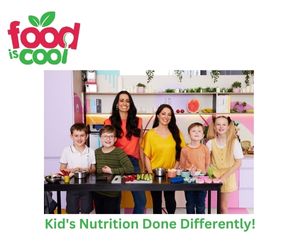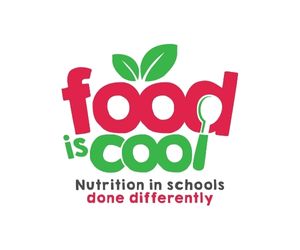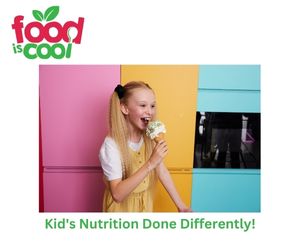By Flavia Fayet-Moore and Sinead Storch from www.foodiscool.com
Who are our toddlers and preschoolers in 2024? Let us introduce you to Gen Alpha. Born in 2010 or later, they are the Millennials’ children and the first generation who will be entirely born and have their lives shaped by the 21st century. What is in store for our nation’s youngest learners, who will be the most materially equipped and IT literate generation to exist?
Given the growing research on the negative effects of excess screen time and technology use on health, how can we role model and equip these children with knowledge and experiences that will have a positive and meaningful effect on their life?
(Re)introducing mother nature. In fact, not only is nature bathing a thing (using nature as therapy rather than just recreation), being in nature in early childhood, including home gardens and growing food, can have a tremendous impact on their development. They not only learn reasoning and discovery, but also improve their relationship with food, for life. Hands-on learning that takes place with gardens and fresh produce helps children learn essential developmental life skills, they also learn about fruits and vegetables, nutrition, food systems, food origin and culture. Together, it educates and improves children’s health, now and for the future.
Here are our top 10 reasons why this generation needs nature and how teaching them how fruits and vegetables are grown hits all the marks:
- Greater understanding of where food comes from. Some adults still don’t know what a pineapple bush looks like and that it takes 2 years for it to grow!
- More likely to eat what they’ve grown. It’s proven that home gardens help children eat more fruits and vegetables and actually results in more vitamins and minerals in the body.
- Get children outdoors. Outdoor light is different to screenlight and is super important to control mood and children’s body clock. Too much screen time does the opposite and disrupts children’s clock that controls when they wake and when they sleep.
- Helps build a healthy gut microbiome (the good bugs in the gut). By allowing children to play with dirt, dig, and plant, not only does it increase their connection to nature, but also changes their gut’s bugs, which literally controls how the brain works (reducing anger and stress) and how their body fights germs, keeping them both healthy and happy.
- Teaches children about our food systems. Children build a greater appreciation for the time, effort and care that goes into growing food, giving them a sense of responsibility and know-how in caring for plants.
- Gets children interested in science and nature. A strong connection to nature instills an appreciation for the environment, the circle of life, and all of its inhabitants. By growing food at home, they can learn about the process of photosynthesis (how plants convert sun into energy) and how plants grow, eat and thrive. They learn about different plants, insects and animals that make up our ecosystem and how we all play a role in keeping it healthy. This can foster a love of learning and build on existing knowledge and has even been shown to improve academic performance among older children.
- Creates a connection to others and cooperation. Growing our own fruits and vegetables can be a fun way to spend quality time as a family. It can teach children to learn from their mistakes and build resilience- an essential skill necessary in raising confident, capable, happy, and successful adults.
- Develops their kinesthetic learning and self-esteem. When children grow and eat their own fruit and vegetables at home, they have the opportunity to gather data through all of their senses (touch, taste, smell, hearing) and connection with nature- a crucial part of sustainability education in early childhood. When a child successfully grows produce, they further develop their self esteem.
- Gets them moving while teaching them to have patience. In the age of instant gratification, growing food takes time, and teaches children the art of patience. At the same time, it gets them off screens and using their bodies to move, dig, plant and weed.
- Helps understand cause and effect and to appreciate food so that it is not wasted. Many children nowadays think that food comes from a store. If we teach them about growing food, they may be more likely to appreciate it and less likely to waste it. It teaches them that plants die without enough water, sun or nutrients, and that plants even compete with other plants (i.e. weeds) for survival. It teaches them that they need to take care of the plants, just like they need to take care of their bodies.
Starting a home garden doesn’t have to be hard. You can start choosing easy-to-grow herbs like parsley and growing them in a small pot on a kitchen sill, grown your own bean sprouts or even build a worm farm!
Food is Cool is a nutritional program for kids aged 2-6 years that’s aimed at Teachers and Parents to help with engaging children with food in the most meaningful and positive way possible.
Our approach is fun and engaging… and shocking. The norm in society around food and nutrition is not evidence-based way. We are here to help you, and everyone who has a role in a child’s life, to re-think and re-work (almost) everything you thought you knew about food and nutrition- and throw quite a bit right out the window!

Dr Flavia
Flavia Fayet-Moore is a change-maker in global human health and wellbeing. She is a Brazilian-born, Canadian-raised and Australian-made scientist (3 degrees in nutrition), researcher and entrepreneur. She believes that science, technology and creativity can go a long way in solving some of the problems we face globally in nutrition.
Dr. FLAV has focused her research and advocacy work on promoting a food-first approach to address public health’s biggest problems, especially among children. Flavia is passionate about improving the relationship that everyone has, with food- for life.

Miss Sinead
Sinead has over a decade’s experience in education and is a passionate and experienced teacher, author, educational leader and professional development facilitator.
Sinead has a strong background in educational leadership roles and puts an emphasis on communication and leading strong and compassionate teams.
Sinead brings a global perspective to education, having worked in New Zealand, Australia and Singapore, enhancing her understanding and importance of cultural diversity. Sinead is passionate about facilitating and providing professional developments to equip staff with the strategies, methodologies and language to help build not only a team culture, but a culture of mindfulness.








